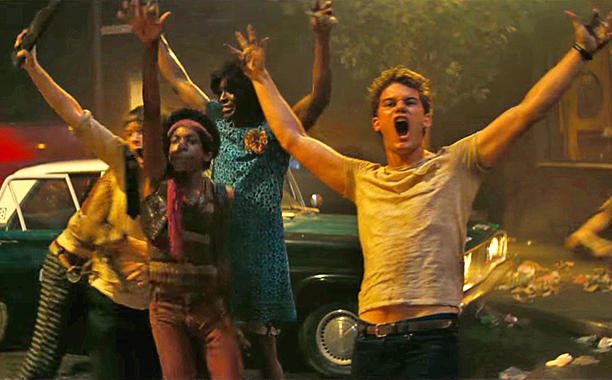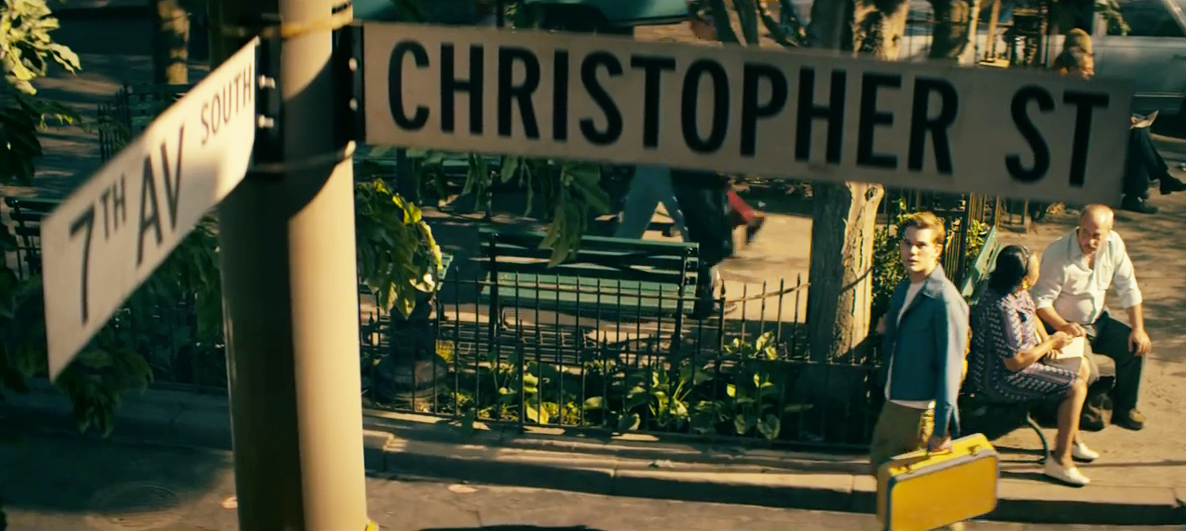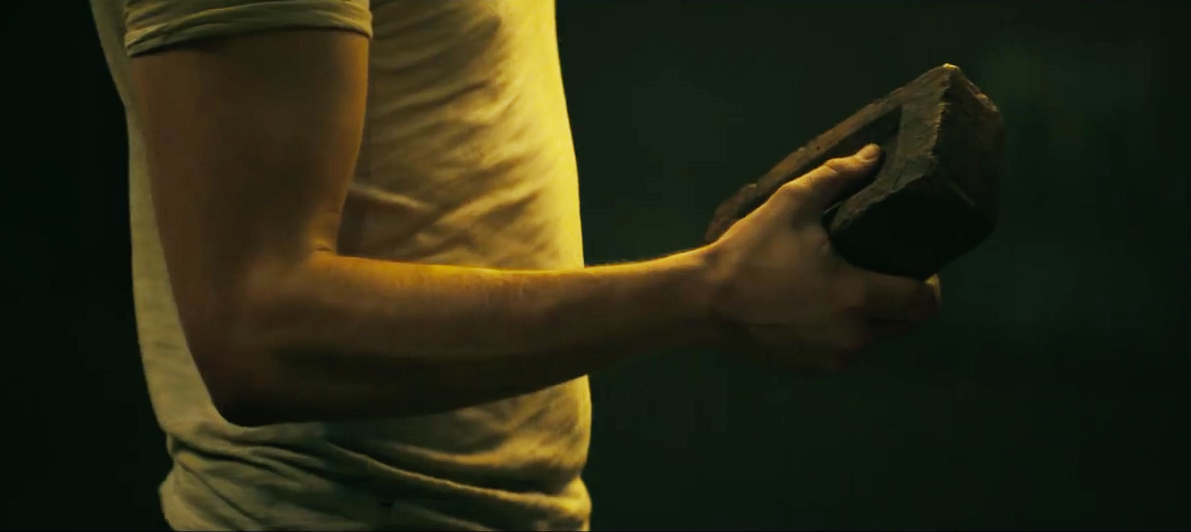First screened at TIFF. This article was originally published in Nathaniel's column at Towleroad

This one's for Judy!"
… so went a legendary scream (along with brick throwing) as the Stonewall riots began. We can’t know exactly what happened that night, but as the famous saying goes, “when legend becomes fact… print the legend.” Judy Garland, The World’s Greatest Entertainer, had died a week earlier on June 22nd, 1969. Her remains were brought to New York City on June 26th where tens of thousands of people lined up to pay respects, and her funeral, which barred the public, took place on June 27th. The theory goes that the gay community, which had always idolized her (as any sentient human with taste should, then or now) was even more on-edge than usual when the police came to raid Stonewall on the night of June 28th, 1969.
 Fact: All hell broke loose. The rest is (much argued about) ‘history’...
Fact: All hell broke loose. The rest is (much argued about) ‘history’...
Judy grief as combustive fuel is one of the legends at any rate. And one that I heard a lot as a baby-gay whenever people brought up Stonewall. Stonewall was not the true beginning of gay liberation (political groups had been forming since the 1940s to pursue our future rights), but it remains a super handy symbolic one.
Roland Emmerich’s STONEWALL, opening this weekend in limited release, has the clear distinction of being the only narrative feature film (there are just two of them but still…) about the Stonewall Riots to give a flying (monkey) f**k about Dorothy Gale of Kansas. This might seem a small thing to get hung up on, but it points to much larger problems.
Judy-blindness is not the first sign that this new LGBT drama doesn’t know what it’s doing but the earliest to flash an unmistakable “WARNING” sign at you.
And here’s why: Judy is referenced therein, but from a suspicious place of shoulder-shrugging. Our audience surrogate is an outsider, you see, and therein lies the source of so much of what’s wrong with this movie. To understand the Stonewall riots, which is, at heart, the story of a community, an outsider is the last person to whom you should turn. Our audience surrogate is the straightest of gay twinks, Danny (Jeremy Irvine) who hails from Indiana though the drag queens and hustlers who first befriend him in Greenwich Village are quick to dub him “Kansas”.
Danny, rather shockingly to both the in-movie queers and this queer watching, doesn’t seem to “get” any reference to Wizard of Oz or Judy Garland which makes him the dimmest relic imaginable. For the recordThe Wizard of Oz (1939), a movie so famous references and quotes from it pop up everyday in real life all-the-time, no gayness required, became an annual television event in 1959. In 1959 there were only 3 channels, no internet, and fictional Danny was 6 or 7 years old. Since the movie takes place in 1969 and all of Danny’s flashbacks involve a nuclear family living in the golden American hues of television commercials, this seems as impossible a blindspot as if he had never tasted apple pie or played baseball. Even Captain America, frozen on ice from World War II until the 21st century, gets Wizard of Oz references (see: Marvel’s The Avengers, 2012)!
Danny’s parents, as it turns out, are awful homophobes who kick him out when he’s caught servicing the town’s high school football hero Joe (Karl Glusman, the extremely naked star of Gaspar Noé’s explicit sex movie Love). But this isn’t a surprise — any parents who’d deny their children The Wizard of Oz are unfit.

So off to New York City Danny runs, heading straight to Christopher Street and into the welcoming arms of a parade of friendly drag queens and hustlers, and even a few predatory gays who would make even the bitter queens of Boys in the Band (1970) look the other way in “this doesn’t represent me!” embarrassment.
To escape the ‘bitter queen’ tag myself — even though I am bitter because the LGBT community deserves a Stonewall movie as good as, say, Selma which understood not to be a biopic about Martin Luther King but the story of a communal effort since that’s what all civil rights triumphs actually are — let’s note that the movie doesn’t do quite everything wrong. Roland Emmerich, famous out action director, is a lot more at home in the movie-ready cheesiness of Period Piece Americana of Indiana than in the tumultuous New York of 1969. The scenes of middle America homophobia work — including a funny (because it’s so wrong!) educational film about predatory gays that is shown to Danny’s classroom — and Danny’s inarticulate romance with his bisexual friend Joe is semi-touching.
Jonny Beauchamp, who recently romanced and bedded Dorian Gray as the trans prostitute on Showtime’s Penny Dreadful, really goes for it as Ramona who immediately wants to adopt/protect/love Danny. Is he over the top? Maybe. But at least he refuses to play it pathetically as ‘Unloved Drag Queen’ for as long as he can against the screenplay’s forceful attempts to do just that. And though the movie has clearly pre-judged the original members of the Mattachine Society (embodied here by the ever handsome but continually kind of sinister Jonathan Rhys-Meyersas Trevor, a “chicken hawk” to use what I believe was the vernacular of the time (?), who everyone but the naive Danny mistrusts) it’s generally good natured enough to make time for redemptive moments or shots of everyone. Yes, even the villains get loving shots in the Pride March finale and the “Whatever Happened To…” text that so many true-ish movie stories use to wrap up.
But occasional moments-that-are-passable aside, Stonewall isn’t gritty or smart or well acted enough to survive the Mean Streets of New York, Christopher or otherwise. Scenes of menace rarely read like menace (save an early beating by two police officers) but like movie concepts of menace. The drag queens and hustlers don’t look like desperate survivors so much as “hipster kids of 1969,” which dilutes the power of seeing them sleeping/squatting in communal huddles in a disreputable hotel, and Irvine remains too pretty-boy blank for the leading roles he keeps winning. When Danny shouts “GAY POWER!!!” after throwing the first brick, he seems more like a pumped up jock who forgot to shower before a pep rally, than a homeless part time hustler at the end of his rope.
About that first brick…

Most damning of all, Stonewall isn’t even well-intentioned enough to make for a respectable LGBT must-see event. When Marsha P Johnson (an actual historical figure played by Otoja Abit) removes the brick from her purse with the intention to throw it on that fateful night (The brick that will begin the historical riot. The brick that will symbolically birth the entire gay rights movement!), Danny balks in a “really?” kind of way, but then he has a change of heart. He takes it from her and he does the famous throwing! If Roland Emmerich were a satirist like, say, Paul Verhoeven (Showgirls), we might declare this last shocking misstep a perversely genius move.
It is the clearest visual embodiment the movies have arguably ever provided of the way Hollywood whitewashes history, continually robbing minorities, women, people of color gays, gays (you name it) of their own stories by appropriating them for the glory of Straight(ish) White Men. But Emmerich is not a genius satirist so at best this is an Idiot Savant move; may this scene be used forever more in History, Literary, Film and Racial Studies classrooms to demonstrate White Appropriation and ahistorical agendas in storytelling.
Stonewall may have birthed Gay Pride but this Stonewall is a Shame.